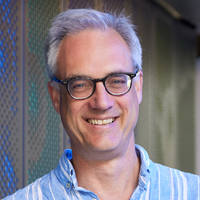dNdScv
dNdScv tool uses dN/dS methods to quantify selection in cancer and somatic evolution
The dNdScv R package is a suite of maximum-likelihood dN/dS methods designed to quantify selection in cancer and somatic evolution (Martincorena et al., 2017). The package contains functions to quantify dN/dS ratios for missense, nonsense and essential splice mutations, at the level of individual genes, groups of genes or at whole-genome level. The dNdScv method was designed to detect cancer driver genes (i.e. genes under positive selection in cancer) on datasets ranging from a few samples to thousands of samples, in whole-exome/genome or targeted sequencing studies.
The background mutation rate of each gene is estimated by combining local information (synonymous mutations in the gene) and global information (variation of the mutation rate across genes, exploiting epigenomic covariates), and controlling for the sequence composition of the gene and mutational signatures. Unlike traditional implementations of dN/dS, dNdScv uses trinucleotide context-dependent substitution matrices to avoid common mutation biases affecting dN/dS (Greenman et al., 2006).
Downloads
Download
The software is available for download on GitHub: https://github.com/im3sanger/dndscv
Installation
You can use devtools::install_github() to install the dndscv package directly from R:
> library(devtools); install_github(“im3sanger/dndscv”)
Further information
For a tutorial on dNdScv see the vignette included with the package. This includes examples for whole-exome/genome data and for targeted data.
When using the software, please cite:
Martincorena I, et al. (2017) Universal Patterns of Selection in Cancer and Somatic Tissues. Cell. http://www.cell.com/cell/fulltext/S0092-8674(17)31136-4
Contact
If you need help or have any queries, please contact us using the details below.
Please contact Inigo Martincorena: inigo.martincorena@sanger.ac.uk
Sanger Institute Contributors

Inigo Martincorena
Group Leader
Previous contributors

Dr Peter Campbell
Former Head of Cancer, Ageing and Somatic Mutation, and Senior Group Leader